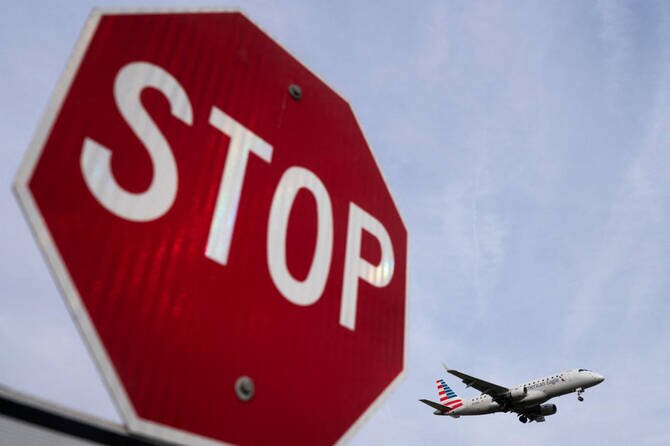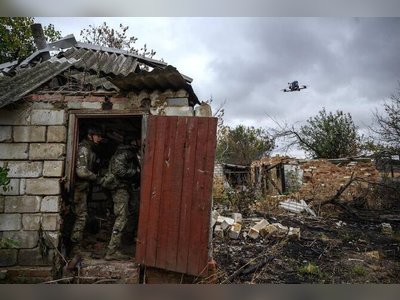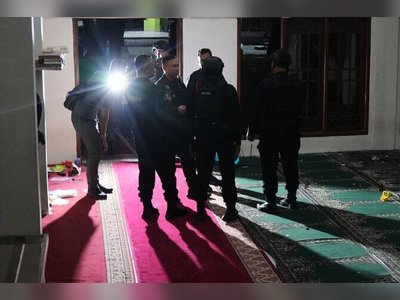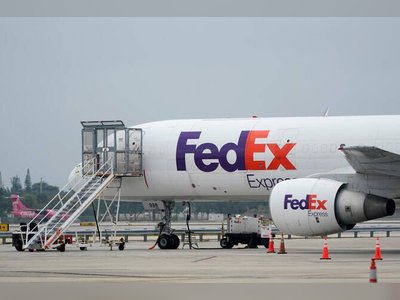
US Airlines Implement Second Day of Flight Cuts Amid Ongoing Government Shutdown
The government shutdown has led to flight cuts, affecting airlines and travelers across the US.
US airlines and travelers faced a second consecutive day of flight reductions on Saturday due to ongoing government shutdowns.
The Federal Aviation Administration (FAA) mandated that airlines reduce their flights by four percent at 40 major airports starting from Friday morning ET (1100 GMT).
This measure is expected to escalate, with six percent cuts planned for Tuesday and increasing to ten percent by November 14th.
The flight reductions primarily affect the country's largest carriers, including American Airlines, Delta Air Lines, Southwest Airlines, and United Airlines.
On Friday, approximately 700 flights were cancelled across these airlines.
However, given the typically lower volume of air travel on Saturdays, the impact is expected to be slightly less severe than the previous day, with United Airlines planning to cancel 168 flights (down from 184) and Southwest Airlines cancelling nearly 100 flights (down from 120).
During the record-breaking 39-day government shutdown, over 13,000 air traffic controllers and 50,000 security screeners have been required to work without pay, leading to an increase in absenteeism.
According to reports, air traffic controllers were informed on Thursday that they would not receive compensation for a second pay period next week.
In response to the ongoing shutdown, the Trump administration has intensified pressure on Congressional Democrats to accept a Republican proposal for government funding, which would allow for the reopening of federal services.
The administration's efforts include highlighting the potential disruptions in air travel as one of their strategies.
In contrast, Democratic lawmakers argue that Republicans are responsible for the shutdown due to their refusal to negotiate the extension of healthcare subsidies.
Transportation Secretary Sean Duffy stated that if the situation worsens and more controllers fail to report for duty, it may become necessary to implement 20 percent reductions in air traffic.
He emphasized that decisions would be based on the data available in the airspace.
Apart from the scheduled cancellations, absences of air traffic controllers resulted in flight delays affecting over 5,600 passengers across ten airports, including major hubs such as Atlanta, San Francisco, Houston, Phoenix, Washington D.C., and Newark.
Earlier this week, FAA Administrator Bryan Bedford reported that between 20 percent to 40 percent of controllers were absent from work on any given day.
The Federal Aviation Administration (FAA) mandated that airlines reduce their flights by four percent at 40 major airports starting from Friday morning ET (1100 GMT).
This measure is expected to escalate, with six percent cuts planned for Tuesday and increasing to ten percent by November 14th.
The flight reductions primarily affect the country's largest carriers, including American Airlines, Delta Air Lines, Southwest Airlines, and United Airlines.
On Friday, approximately 700 flights were cancelled across these airlines.
However, given the typically lower volume of air travel on Saturdays, the impact is expected to be slightly less severe than the previous day, with United Airlines planning to cancel 168 flights (down from 184) and Southwest Airlines cancelling nearly 100 flights (down from 120).
During the record-breaking 39-day government shutdown, over 13,000 air traffic controllers and 50,000 security screeners have been required to work without pay, leading to an increase in absenteeism.
According to reports, air traffic controllers were informed on Thursday that they would not receive compensation for a second pay period next week.
In response to the ongoing shutdown, the Trump administration has intensified pressure on Congressional Democrats to accept a Republican proposal for government funding, which would allow for the reopening of federal services.
The administration's efforts include highlighting the potential disruptions in air travel as one of their strategies.
In contrast, Democratic lawmakers argue that Republicans are responsible for the shutdown due to their refusal to negotiate the extension of healthcare subsidies.
Transportation Secretary Sean Duffy stated that if the situation worsens and more controllers fail to report for duty, it may become necessary to implement 20 percent reductions in air traffic.
He emphasized that decisions would be based on the data available in the airspace.
Apart from the scheduled cancellations, absences of air traffic controllers resulted in flight delays affecting over 5,600 passengers across ten airports, including major hubs such as Atlanta, San Francisco, Houston, Phoenix, Washington D.C., and Newark.
Earlier this week, FAA Administrator Bryan Bedford reported that between 20 percent to 40 percent of controllers were absent from work on any given day.









